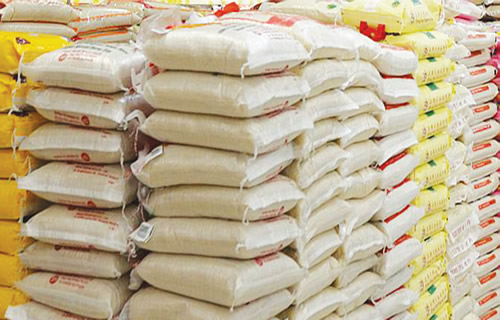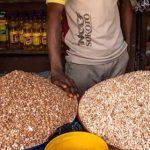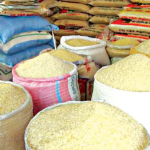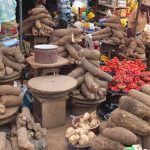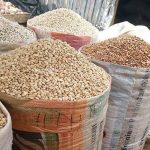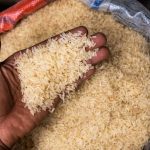The price of local rice in Nigeria has skyrocketed by 152.9% year-on-year, with a 50kg bag rising to N95,738 in September 2024, up from N37,853 in September 2023, according to the National Bureau of Statistics (NBS). This sharp rise reflects the increasing pressure on household budgets as the cost of basic staples continues to climb across the country.
In its ‘Selected Food Price Watch’ report for September 2024, the NBS noted that the price of 1 kilogram of local rice reached N1,914.77, a significant increase from N757.06 in the previous year. Beans, a critical staple for many Nigerians, showed an even higher growth rate, with the price of brown beans sold loose jumping over 281.97%, from N716.97 in September 2023 to N2,738.59 in September 2024.
The report also outlined significant increases in the prices of other essential food items. For example, the cost of 1kg of boneless beef surged by 99.99% from N2,816.91 in September 2023 to N5,633.60 in September 2024. On a month-to-month basis, beef prices rose by 1.44%, highlighting the continued upward trend in food costs.
The price of agricultural eggs (medium-sized, 12 pieces) increased by 137.43% year-on-year, rising from N1,047.47 in September 2023 to N2,487.04 in September 2024. Bread, another key food item, saw a 115.74% increase, with the cost of sliced bread climbing from N708.36 to N1,528.19 over the same period.
Regional Price Variations Across Nigeria
The NBS report also detailed significant regional differences in food prices across Nigeria. Bauchi State recorded the highest price for 1kg of brown beans at N3,450.04, while Adamawa reported the lowest price at N1,800. For eggs, Niger State had the highest cost for a dozen medium-sized eggs at N3,000.84, compared to the lowest price in Borno State at N2,075.58.
The average price of sliced bread was highest in Rivers State at N1,852.5, with Yobe State recording the lowest price at N982.79. For local rice, Kogi State reported the highest price at N2,688.04 per kilogram, while Benue State had the lowest price at N1,229.14.
Impact on Households and Small Businesses
The surge in food prices has hit Nigerian households hard, especially in lower-income brackets. Many families are struggling to meet basic food needs as prices of staples continue to rise. For MSMEs in Africa, particularly those in the food industry, these rising costs pose significant challenges. Increased raw material costs, such as rice and beans, can impact the prices of finished goods, leading to reduced consumer demand and profitability.
The food price hike also adds pressure on small-scale food vendors, restaurants, and caterers, forcing many to either raise their prices or reduce portion sizes to stay afloat. This trend could negatively affect their customer base, especially among low- and middle-income earners.
A Call for Policy Intervention
These escalating prices have reignited calls for government intervention to stabilize food prices and support domestic agriculture. Experts are urging the Nigerian government to adopt policies that will reduce the cost of food production, improve supply chains, and tackle inflation, particularly in essential food categories.
Dr. Olawale Akinwumi, an economic analyst, said, “The continuous rise in food prices is unsustainable, especially for low-income families and small businesses. It is crucial for the government to take immediate steps to address the root causes, such as improving infrastructure for food production, reducing dependence on imported goods, and offering subsidies where necessary.”
As inflation continues to affect staple food items, both businesses and households across Nigeria and Africa are grappling with the challenges of food insecurity, leaving many to question how long this trend will continue.


